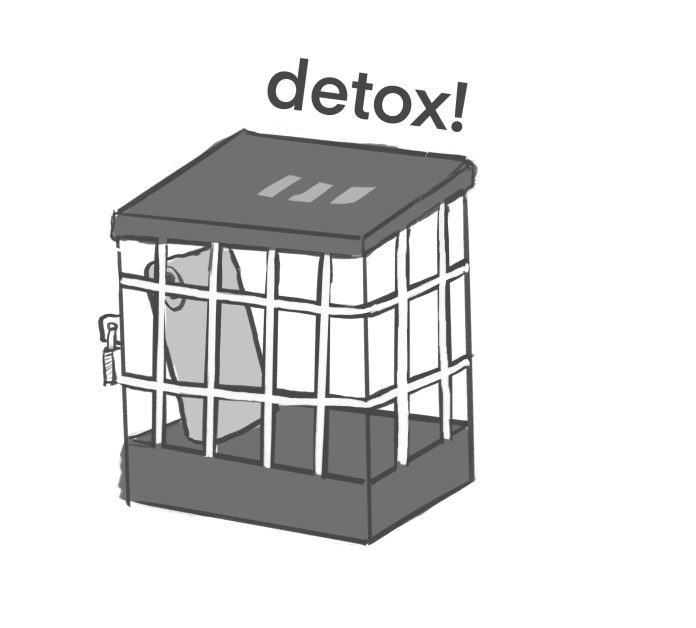Grant Yoon ’27 is a prospective English major. He enjoys writing poetry for the campus literary magazine, the Gallery, and reading whatever books have a good vibe to them (currently on Anne Lamott’s Traveling Mercies). He also likes sitting by large bodies of water, drinking lots of coffee and overthinking movies, song, and things in general. Contact him at giyoon@wm.edu.
The views expressed in this article are the author’s own.
Yes, yes, I know. Here come the Andrew Hubermann quotes and a diatribe about how social media hijacks your brain’s reward system. But you’re wrong: I have no clue how dopamine works, and anyone who listened to some guy explain it for two hours doesn’t either. I do know this: I am an anxious college student who is generally made more anxious by the small machine of constant entertainment and social stimulus that I carry on my person at all times. So, at the advice of my friend (a somewhat strange guy who once shaved his head because he wanted to focus on his character instead of his appearance), I turned my phone off for a week over spring break — and I loved it. Not because I became more productive, nor because I felt myself improve tangibly; I just felt more present and the things around me felt more real, and it was wonderful to break from my routine for a bit. So I will have to be a little predictable; I’m recommending that you try, even briefly, to take a break from your phone.
And don’t get me wrong: Oh my God, was it boring. Yes, I spent time with my family, saw the aforementioned friend and went on walks with my dog. But something in my mind was insisting that I was missing something, that I had something to attend to — and that I better do it quick. It hurts to admit it, but I really am addicted to my phone, and I didn’t even fully commit: I had to let myself suckle on the weak sustenance of Instagram from my laptop a few times a day. Shameful.
For the most part, I just sat with this weird, sticky feeling of craving. I don’t know if I would’ve enjoyed break more if I had kept my phone on, but it was helpful to even realize that the crutch was there in its absence. What was I avoiding by relegating every spare moment of my day to the hungry gremlin of social media? Loneliness? Existential dread? A lack of purpose or self-knowledge? The real answer to this question is: who knows? I went without my phone for a week, not a year in a monastery. But, because of one particular aspect of the week, I still want to advocate for it.
I resolved, along with putting my phone away, to finally read “Walden” by Henry David Thoreau, a book that signified in my mind that some pieces of writing were just too boring for me. When he started off by describing the process of building his house and listing all of its expenses, I started to doubt my decision. But I kept on with it, and after a bit of egotistical nonsense where he talks about how great his lifestyle is and how boring everyone else is, the core of the book, the strength of its essays intimated themselves to me: Thoreau’s project of deep observation of his surroundings, of getting away from the usual way of filling his time, resulted in something incredible. At its best, his writing is like liquid flowing intelligence. It clearly impresses his love for the place and its beauty, this strange serene landscape given to him by an unlikely ally: boredom, and the attention it necessitated.
Far be it from me to compare myself to Thoreau (which I definitely did not do in the last paragraph), but I felt like I had come to understand him better in my small retreat from the daily comfort of my phone; life can pass by quickly in a mindless dissipation that we are barely aware of unless we slow down and look around. Despite the pull toward my phone, I felt importance slowly melt back into the daily events of my life at home. I wasn’t looking for anything to fill the time, and so it slowly filled with dense detail and contentedness as I drank coffee with my mom in the mornings and discussed movies we had watched, or stayed up late laughing with my sister about the drama in her life. These experiences became more real, more memorable simply because I removed an element of distraction that is so continually present we forget it.
Thoreau was said to have sat on the step of his one-room house and just watch the scene in front of him for hours. I would encourage you to leave your phone in your dorm and sit on the dock one evening and just watch the sun set over Matoaka. It’s unbelievable: the way sunlight flits on the thin ripples before gradually shortening and draining into darkness, how the rusty-orange of the sky thins into violet before casting the treeline to an utterly black, two-dimensional silhouette — the noises of small waves, frogs croaking and birds chirping as time turns over, patiently. Nothing satisfies like a strong curiosity and the willing act of attention to what is really around you.

